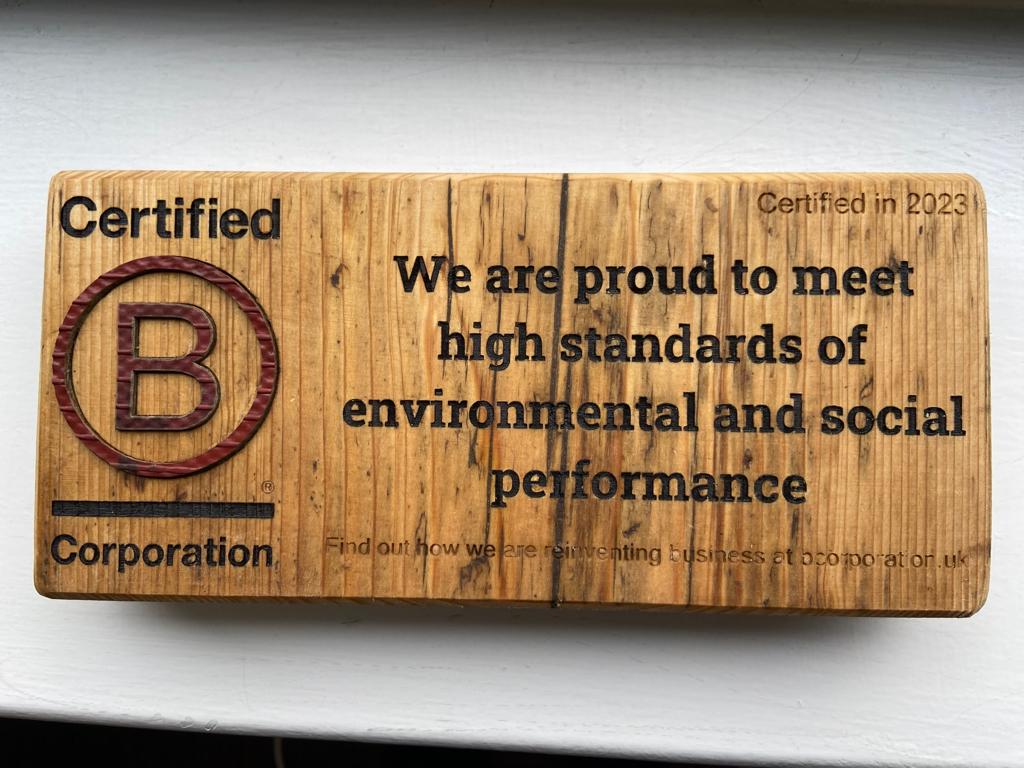Life will go on after this crisis for the vast majority of companies, but it won’t be the same and it won’t be smooth. Most of the underlying factors around this transition are beyond your control. But some things can be influenced, and you need to decide quickly whether you wish to influence events or be swept along with the tide.
|
Engaging teams as we come out of lockdown |
I was much taken many years ago when listening to Tom Peters on the subject of managing and implementing change. He argued about the virtues of having a crisis to convince everybody involved of the need to act differently. In fact, he went so far as to say: “If you haven’t got a crisis, invent one!” It’s that important. This time we have no problem identifying the major crisis to use as an opportunity to change.
In the early nineties I was persuaded to go on the stump by Government Office North West to spread the word on employee engagement after it had worked so well at Leyland Trucks. Over the coming two decades plus, I must have spoken to thousands of managers who all pretty well agreed that employee engagement was a good thing to have, at the time of the presentation. However, when we estimated how many of these new apostles actually went away and did something about it, the outcome was hugely disappointing. Less than half of one percent actually tried it out.
About five years ago, I decided to run a series of interventions designed to discover where this reluctance stems from. After all, to those who have tried it, often several times, it is an absolute no-brainer with no downsides and lots of upsides, both material and qualitative. The outcome was very surprising. The key constraint appeared to be a fear of being taken out of your comfort zone and into a new way of working. Despite the evident attractions, the idea of having to adopt a new paradigm as a leader/manager with the attendant risk of discovering you couldn’t hack it was just a step too far. There is a real paradox here of those who are viewed as constantly urging the workforce to change attitudes and habits being too insecure to change themselves.
The truth is that there are some in positions of leadership who may not make the transition, but the vast majority will, irrespective of age, experience and inclination.
Risks are Minimal
As we come out of this crisis you have an opportunity to test your resolve in this area and to examine whether your motivation/inclination is soundly based. The risks are minimal. It may occasionally bruise your ego. It may cause you at times to doubt your self-image/perception. But adopted with sincerity and enthusiasm, there is every chance that you will achieve the step change in holistic performance needed post Covid 19.
Nevertheless, once normal service is restored, time will be at a premium. Let us therefore examine what we can do with limited resources.
1: Understand your shadow of influence.
We discuss this at great length in my LEAD™ Masterclass for good reasons. Your job in leading the organisation will be at least 50% about your ability to motivate those around you to strive towards excellence with technical proficiency taking a poor second place. We understand through Professor Edgar Schein, renowned expert in organisational management, that culture is driven by the perceptions of conscious and unconscious behaviours of key organisational influencers. And we can see that this unseen “shadow of influence” will dictate your effectiveness in both motivation and cultural improvement.
It makes sense therefore to start by finding out what this shadow of influence looks like. We can adopt formal routines like Peer reviews and Management Style Questionnaires (a simplified appraisal). QuoLux™ can guide you here but in essence these are simple, quick, and cheap devices to start the process of understanding. Don’t expect to achieve the finished article at stage one. This is an ongoing process where each iteration provides you with greater insights, but you will learn much from the initial results.
However, even if I cannot persuade you to adopt a formal assessment here, you should at the very least try and subjectively gauge what people think of you. Talking to people can help although there will be challenges about telling the boss something other than s/he would like to hear. Nevertheless, the more you engage in this activity, the greater your understanding will be.
It can be frustrating. If I go back to the eighties when I first undertook a peer review, I found the outcome full of mutually exclusive expectations. For example, I was marked poorly on meeting disciplines by my management team. However, on closer inspection, three wanted more time for discussion and the other three wanted short, sharp meetings based on metrics. Simply explaining the situation and making a few limited changes solved the problem.
I found major benefits in understanding my personal impact on the organisation, bad and good, once the 1:1s and other meetings were established. Nevertheless, a comprehensive understanding of how you can improve your motivational skills will really come from the formal techniques around peer reviews and appraisals. My book, Growing Your Own Heroes, covers this in chapter 9 to a limited degree.
2: Demonstrate humility
Number 1 above takes time. Demonstrating humility doesn’t, just courage. The relationship between a leader (the boss) and her/his charges (the employees) is increasingly complicated in modern society. The autocracy exhibited by the old-fashioned despot of forty years ago was in comparison to today relatively straightforward. The answer to the instruction “Jump” was simply “How high?”. Nowadays, despite the surprising number of autocrats still about, such extreme behaviour is not tolerated over the longer term. Autocrats seemingly move jobs a lot.
It is impossible to prescribe how you should behave as a leader without taking into account the situation, the personalities, the rate of change, the level of competitiveness in the business, your terms of reference etc, etc. Success can come from a range of skill sets.
However, we do know that when it comes to motivation and inspiration, a sincere and confident humility is a powerful asset. All my own leadership heroes have this common characteristic. The ability to express ignorance without weakness. The lack of an obvious ego. Their habit of declaiming not “I did this” or even “we did this” but rather “you did this”, expressed with genuine modesty, can be a powerful way of engaging people and of inspiring loyalty.
I remember debating this with colleagues just after reading Jim Collins’ “Good to Great”. One came out with an exasperated “Does this mean if you can’t be sincere, then you just fake it?” After the initial outrage, we conceded that our colleague had a point but “practise it” seemed a more reasonable and appropriate suggestion than the earlier inflammatory suggestion.
The reality is that this style of leadership may be new to most of us and needs continuous refining. Don’t expect to get this right first time. Humility will help when you make mistakes.
3: If you are going to obsess, obsess about excellence
One of the most difficult tasks in leadership is persuading the workforce, including the senior team, that the status quo is the enemy. The way we do things today may give us a competitive advantage, but we have to assume that our competition is trying to erode any marginal edge we might have. However, inertia, complacency and comfort zones can often pose insuperable barriers in the steady state. As lockdown restrictions continue to ease, you have a limited, time-based advantage. Employees will be more receptive to the inevitability of change when you restart so ensure you hit the ground running.
From experience I found that after a crisis a clear strategic imperative repeatedly emphasised by words and behaviour worked wonders. One of the most impressive leaders from crises I have ever come across was Sir Bernard O’Connell, the principal of Runshaw College in Lancashire. From the depths of despair after “Incorporation” where tertiary colleges like Runshaw were meant to be self-managing without proper training, preparations or indeed funding, Bernard continuously projected a vison of excellence and academic rigour which eventually silenced the negative minority and awoke the enthusiasm of the hitherto quiet majority. His mantra never fixated on single metrics but on all aspects of performance. He envisaged a new type of partnership for his 16-19 pupils based on an adult-to-adult relationship in pursuit of collective and individual excellence. The result was that within 24 months this obscure college in the middle of nowhere became the best in the country and has sustained that position for 26 years.
Create your vision and then communicate it over and over again. Return to the theme constantly in your various interactions, whether face to face or in writing. Become the exemplar in both word and deed. Good practice promotes more good practice.
4: Make sure you are perceived as being positive. The glass is half full!
Leadership is very often a lonely occupation. At times it will appear that you have all the troubles of the world on your shoulder and a feeling that you and only you are obliged to sort everything out. You work long hours and endure continuous stress. It is perfectly reasonable for you occasionally to feel pessimistic. However, going back to this issue of you being “on show” 24/7, overtly displaying this negative outlook can have a profound impact on general morale.
Managing by Walking About (MBWA) can be a very productive practice. Not only will you learn much more about the business from the sharp end, making yourself accessible and available can have a massive impact on morale and the general ambience. Each one of my three "heroes of leadership" had the happy knack of raising employees’ spirits just by spending an hour or so chatting to colleagues about work in general. In family firms particularly, the whole organisational culture can be strongly related to the interpersonal skills of the leader or patriarch.
Nevertheless, MBWA can go wrong if managed badly and the most common failing here is exhibiting a negative persona. Whether the root of this negativity is related to conscious or unconscious behaviour is irrelevant. In my time as a consultant, I have seen this routine backfire very badly through aggression, such as acting as the chief inspector on walkabout, bad-temper and even, on one occasion, a regular Monday morning huff as the overindulgence in alcohol from the previous weekend made its mark.
Next Steps
It is vital therefore that the Leader or Leaders project a positive and constructive demeanour at all times when “on show” with the workforce. It does no harm to smile, nor does it take much effort to phrase your comments in a constructive and helpful manner even in a crisis. You may be under stress, but it will do the company no benefit to have everyone equally concerned.
The last year has been very disorientating and unsettling for all your employees. There will be a widespread uncertainty over what will happen as the economy splutters back into operation. They will have all seen the news about Rolls Royce and about similar woes in associated businesses. They do not need this uncertain future reinforced by pessimism and negativity from their senior decision maker.
I understand that a balance is needed and certainly adopting a Trumpian excess of optimism will simply destroy your credibility. But try to inject some positivity by selecting the right language and demeanour when interacting with your colleagues, especially when using this brave new world of video communication.
Given what we know about the impact of leadership behaviours on culture and performance, by leading from the front as we come out of this crisis and beyond, you can set an example as others look to you for guidance, reassurance and stability.
I have worked with QuoLux™ to create a short course that will help you and your management team to grow stronger as you lead out of the crisis. Click to find out more about it.
Professor John J Oliver OBE
The QuoLux™ Blog brings leading insights to business leaders and managers, with models, tools and techniques that stimulate thinking and provide practical, actionable and valuable approaches. Topics include leadership, management, strategy, leading change, leading teams, employee engagement, Good Dividends and many more. Get articles like these and more when you subscribe.





